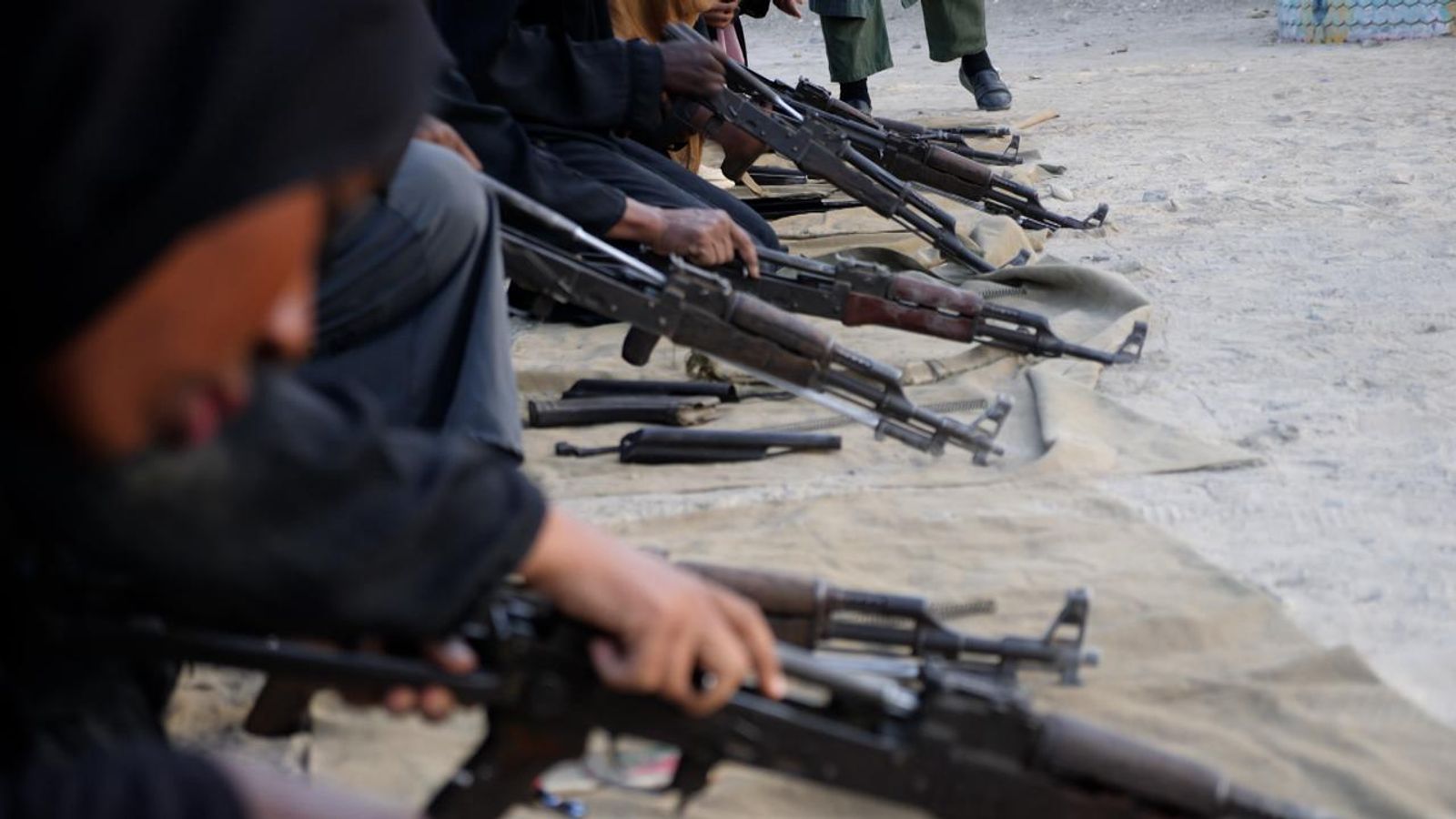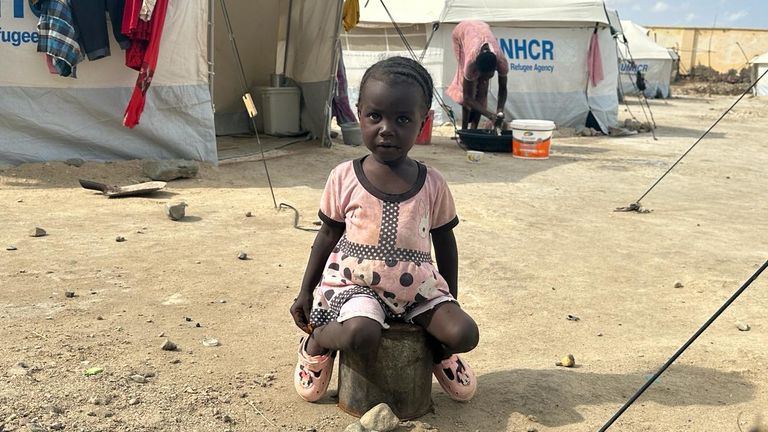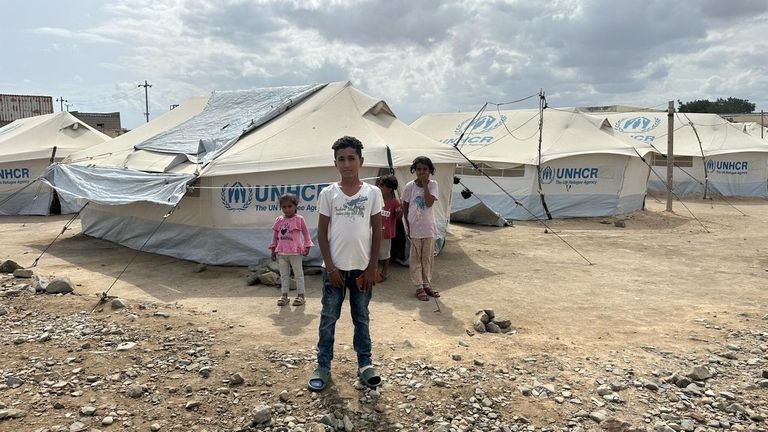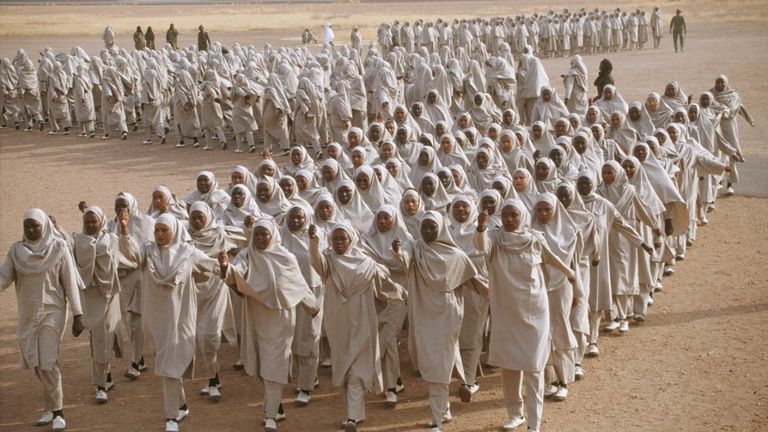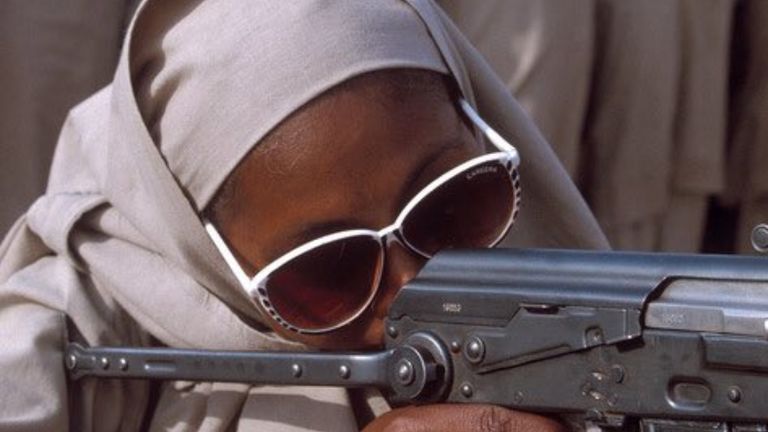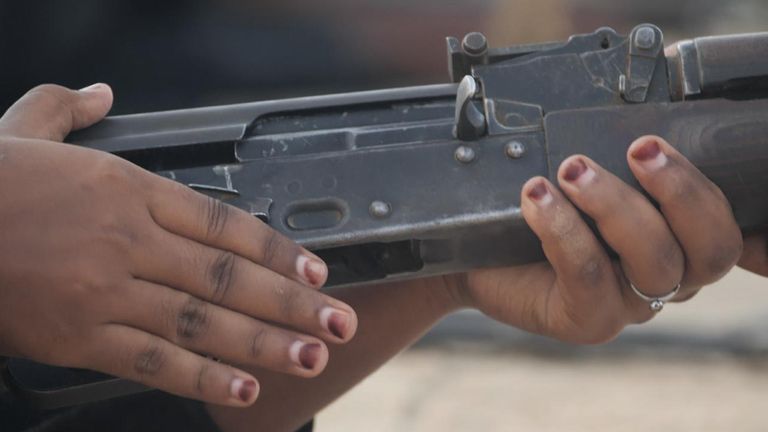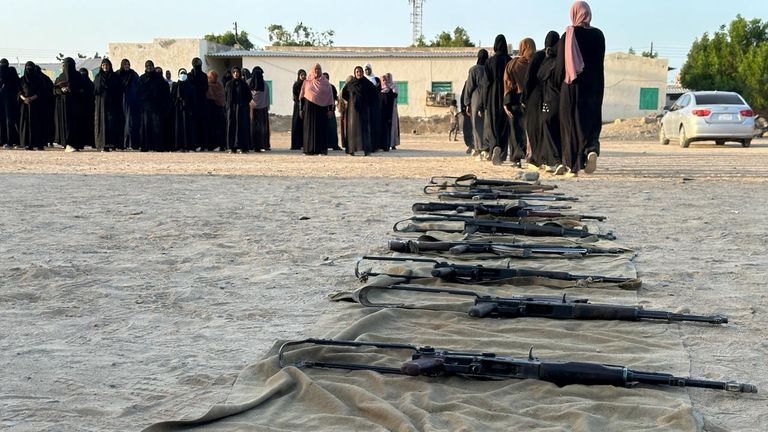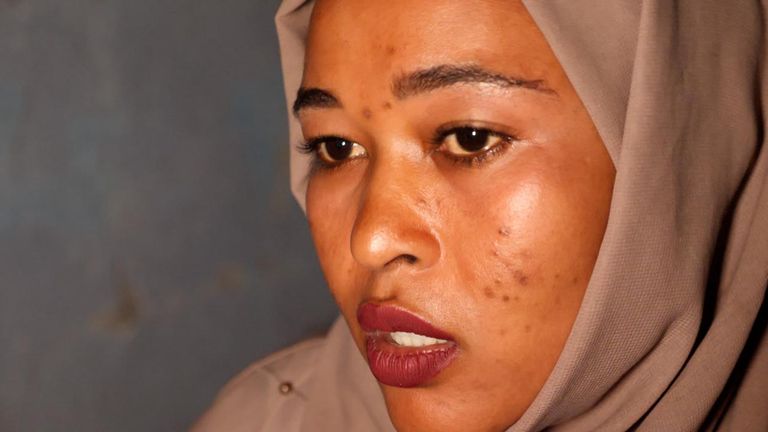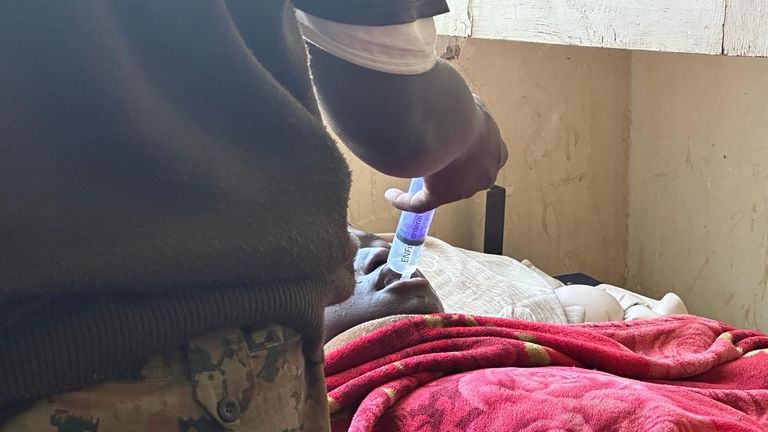A school yard in Port Sudan where children studied and played before the war has transformed into a combat training site for women and girls.
Students, teachers and housewives are meeting daily to learn drills and how to cock and fire AK47 machine guns from military officers.
Some are here out of loyalty for their conscripted sons, fathers, uncles, and brothers who have been deployed across the country in the Sudanese Armed Forces (SAF) war against the Rapid Support Forces (RSF).
“We support the military! They don’t need us but we are here to support them,” they yell enthusiastically under the watchful eyes of their new commanders.
“My son was killed by the RSF – he was an officer,” says one woman as a sob escapes.
Others are here out of sheer necessity.
“We are here to defend ourselves and our children – all we stand for against all we have lost,” another says with fire in her eyes. “We have seen so much.”
She tells me the RSF killed her nephew and abducted her niece who has been missing ever since.
This camp is one of many training sites for women and girls springing up across the country after SAF commander-in-chief Abdelfattah Burhan called for civilians to take up arms and fight the RSF.
‘The scale of rape is unthinkable’
One initiative behind recruitment in Port Sudan is called “Kandakat” – meaning “Nubian Warrior Queens” – a word used to describe the women who led anti-regime protests in Sudan’s December 2018 revolution.
They see themselves as civic actors empowering women exposed to the extreme, widespread violence of the RSF.
“The scale of rape is unthinkable. We have met girls in these camps who have been raped,” says another trainee in the schoolyard.
“I have three girls – I’m here to defend them and myself.”
We promised not to show their faces or share their names.
As they hold their machine guns, an image of the Nusseibeh Sisters comes to mind. They were the first Sudanese female fighting battalion formed in 1990 by former military dictator Omar al Bashir’s ruling Islamist party – only around a year after his coup ended the four years of democracy that followed the 1985 revolution.
Their tasks were limited to support of the army during the civil war against South Sudan that eventually tore the country in two. The deja vu is far from imaginary.
Risks of radicalising traumatised women
The Nusseibeh Sisters’ name and memory was invoked at the opening of the first training camp for women and girls in the River Nile state in August 2023.
The camp was set up by the Karama Association – established after the war with government funding – and has been linked to Islamist remnants of Omar al Bashir’s regime.
This affiliation has ignited fears that the camps could be a breeding ground for the radicalisation of traumatised women.
“In spite of continued criticism and fears around these training camps, the number of women joining is rising rapidly,” says journalist Zikra Mohieldeen, who has been researching the phenomenon since the first camp opened last year.
“The latest data shows the number of female recruits is more than 5,000 and observers believe that the increasing incidents of violations against women in this war closely correlates to a rising number in recruits – especially among displaced women.”
Feminist groups outraged at use of vulnerable women
But even as more civilians join the training, feminist groups continue to decry the militarisation of vulnerable women.
Khadija, a 23-year-old volunteer, activist, and leading member of the Women’s Commission of the Red Sea, understands the drive behind recruitment but fundamentally rejects the military state – whether it is the army or the RSF.
“They feel like this can be a safety net for them and the only option that can save them from the conditions of the country,” she says.
“I personally don’t believe that this is the only solution or something that can give grant full safety.
“Not all options have been explored. There should be workshops, meetings and forums to discuss solutions – discussions we haven’t been able to have since the start of the war because of the security environment.”
Port Sudan, the city she calls home and where she once marched and chanted for civilian rule, has now become heavily militarised – with rampant checkpoints, an 11pm curfew and an overbearing security presence.
The wartime capital is now a base for military leadership and government offices, while housing thousands of displaced people in schools, hostels and even warehouses.
The cost of rent and living has soared and work opportunities have become increasingly scarce.
“We are a hospitable state but have been impacted by the influx,” says Khadija.
“But we chose to stand by them because we know it could happen to us and we could be displaced too – we feel their suffering.”
This story originally appeared on Skynews

